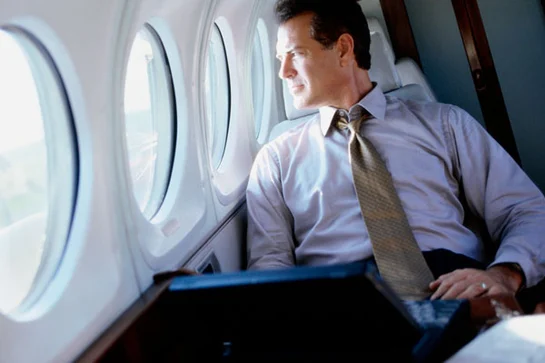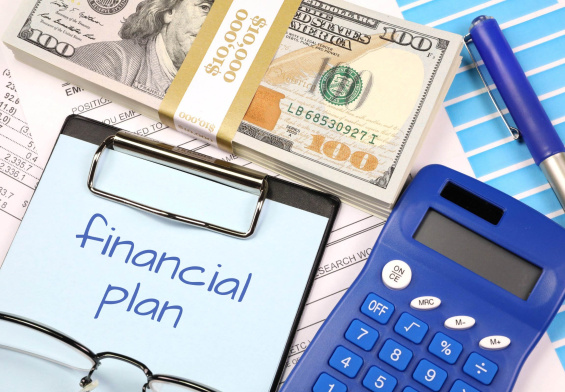
Table of Contents
Tips for Managing a Successful Budget While Traveling
Tips for Managing a Successful Budget While Traveling: Traveling is one of life’s greatest joys—it opens your mind, refreshes your spirit, and offers unforgettable experiences. But one of the biggest challenges travelers face is managing a budget without compromising the quality of their trip. Whether you’re planning a weekend getaway, a month-long backpacking adventure, or a luxury vacation, having a financial plan can make the difference between a trip full of freedom and one filled with financial stress.
Budgeting while traveling isn’t just about cutting costs—it’s about making smart decisions that allow you to enjoy every moment while keeping your finances under control. This guide will explore practical, tested strategies to help you manage your budget successfully while on the road.
1. Start with a Realistic Travel Budget
The foundation of any successful trip lies in careful financial planning. Before booking anything, you need to understand how much you can comfortably spend without hurting your overall financial health.
Start by reviewing your savings and monthly income. Allocate an amount specifically for your trip, ensuring that your daily expenses and emergency funds remain untouched. Break your travel budget into categories such as transportation, accommodation, food, activities, shopping, and unexpected expenses.
By creating a realistic budget, you’ll have a clear idea of what you can afford and where you might need to make adjustments. Many travelers make the mistake of underestimating costs or ignoring small expenses that quickly add up. A detailed plan helps you avoid surprises and enjoy your journey stress-free.

2. Research Destinations and Compare Costs
Every destination has a different cost of living, and doing your homework can help you make informed choices. For instance, $50 might cover a luxury meal in Thailand but only a basic lunch in Switzerland. Understanding these differences helps you pick destinations that fit your budget and expectations.
Use travel forums, budget travel blogs, and cost-of-living calculators to compare average daily expenses in your chosen locations. Consider factors like accommodation rates, food costs, transportation, and activity fees. Once you have a list of possible destinations, choose the one that offers the best balance between experience and affordability.
Remember, sometimes the best experiences come from less popular, budget-friendly locations. Exploring underrated cities or countries can offer incredible cultural experiences without draining your wallet.
3. Plan Ahead for Major Expenses
Advance planning is key to managing your budget effectively. Booking flights, accommodations, and transportation early often guarantees lower prices. Airlines and hotels tend to increase rates as demand grows, so the earlier you book, the better deals you can secure.
Additionally, look for discounts or travel packages that combine multiple services, such as flights plus hotels or attraction passes. Many travel platforms offer rewards and cashback options for early bookings.
Setting reminders for seasonal sales or off-peak discounts can also help you save significantly. The more you prepare before leaving home, the fewer unexpected costs you’ll encounter during your trip.
4. Choose Budget-Friendly Accommodation Options
Accommodation usually takes up the largest chunk of any travel budget. While hotels are comfortable, they can quickly drain your funds. Fortunately, there are plenty of affordable alternatives that still offer comfort and convenience.
Hostels, guesthouses, vacation rentals, and homestays are all excellent options. Many provide shared kitchens, allowing you to cook and save money on meals. If you’re traveling for a longer period, consider house-sitting or volunteering opportunities in exchange for free lodging.
Additionally, loyalty programs or apps that track accommodation deals can help you earn rewards and discounts for future trips. A little flexibility in your expectations can result in significant savings without compromising comfort.

5. Prioritize Experiences Over Luxury
When traveling, it’s easy to get caught up in luxury—fine dining, premium tours, and expensive souvenirs. However, the true essence of travel lies in the experiences you collect, not the price tags attached to them.
Instead of splurging on five-star meals or exclusive resorts, focus on local experiences that offer cultural depth and personal meaning. Street food tours, free walking tours, or visits to community events often provide richer memories than high-end attractions.
Balancing indulgence and practicality is key. Choose one or two special experiences worth spending on and keep the rest of your trip budget-friendly. That way, you enjoy meaningful adventures without financial regret.
6. Use Budgeting Apps and Track Spending
Tracking your spending is one of the most powerful tools for staying on budget while traveling. In the excitement of exploring new places, it’s easy to lose track of expenses, especially when dealing with different currencies.
Budgeting apps like Trail Wallet, Mint, or Spendee can help you log expenses in real-time and view summaries of where your money goes. Many also allow currency conversion, helping you stay aware of costs across countries.
If you prefer traditional methods, keeping a small notebook and recording daily expenses works just as well. The goal is to stay conscious of your spending patterns so you can make quick adjustments when needed.
7. Take Advantage of Public Transportation
Transportation can quickly eat into your travel budget if you rely too heavily on taxis or private transfers. Public transportation, on the other hand, is much cheaper and often provides a more authentic way to explore local life.
Buses, trains, subways, and ferries are not only budget-friendly but also eco-conscious. Many cities offer travel passes or prepaid cards that give unlimited rides within a certain period. Research local options before your trip and plan routes in advance to avoid unnecessary costs.
For shorter distances, consider walking or renting bicycles. Not only will this save money, but it also gives you the chance to discover hidden gems that you might miss while driving.
8. Manage Currency Exchange Wisely
Foreign exchange can be a hidden trap for travelers. Poor exchange rates and high fees can easily eat into your travel funds. To minimize losses, avoid exchanging large amounts of cash at airport counters or tourist-heavy areas—they often have the worst rates.
Instead, withdraw money from local ATMs using a travel-friendly debit card that offers low foreign transaction fees. Some banks partner internationally to reduce or eliminate ATM charges abroad. Before leaving, check with your bank about international withdrawal policies and notify them of your travel dates to prevent card blocks.
Also, carry a small amount of local currency for emergencies, especially when visiting remote areas that may not accept cards.

9. Cook Your Own Meals and Eat Like a Local
Dining out for every meal can quickly become one of your biggest expenses. While sampling local cuisine is an essential part of travel, you don’t need to eat at restaurants every time.
Shop at local markets or grocery stores and prepare simple meals where possible. Many hostels and rental apartments offer kitchen access. Not only is this cheaper, but it also gives you an opportunity to try regional ingredients and flavors firsthand.
When eating out, choose where locals dine. Street food stalls and family-run restaurants often offer delicious meals at a fraction of the cost of tourist-oriented establishments. Avoid restaurants in high-traffic areas where prices are inflated for visitors.
10. Avoid Impulse Purchases
Souvenirs, trinkets, and impulse buys can add up quickly and throw off your travel budget. It’s easy to get swept up in the excitement of buying unique local products, but not every purchase adds real value.
Before buying something, ask yourself if you truly need it or if it’s just a temporary impulse. A good strategy is to wait 24 hours before making a non-essential purchase—if you still want it the next day, it might be worth buying.
Remember that your most valuable souvenirs are often the experiences, photos, and memories you collect—not material items.
11. Travel During Off-Peak Seasons
Timing plays a huge role in how much you spend on travel. High seasons—usually during holidays or summer months—come with inflated prices for flights, hotels, and activities. Traveling during shoulder or off-peak seasons can drastically cut costs while still offering great weather and fewer crowds.
Not only do you save money, but you also get a more relaxed and authentic experience. Local businesses tend to be more welcoming, and attractions are less crowded, allowing you to enjoy them at your own pace.
12. Stay Flexible with Plans
Flexibility is your greatest ally when traveling on a budget. Prices for flights, accommodations, and tours can fluctuate daily. Being open to adjusting your dates or routes can lead to significant savings.
Use fare comparison tools and sign up for alerts that notify you of price drops. Flexibility also extends to your daily itinerary—if an expensive activity isn’t worth it, skip it and explore free or low-cost alternatives instead.
A successful budget traveler knows how to adapt and make the most of opportunities as they arise.
13. Limit Credit Card Usage
While credit cards are convenient and often come with rewards, using them excessively can lead to overspending. It’s easy to lose track of expenses when everything is charged to a card, especially when exchange rates vary.
Carry cash for daily expenses and use cards only for large or emergency purchases. This not only helps you stay disciplined but also avoids surprise fees or poor conversion rates.
If you use a card, choose one that offers travel rewards or no foreign transaction fees to get the most value from your spending.
14. Set Aside an Emergency Fund
Even the most carefully planned trips can face unexpected challenges—missed flights, lost luggage, medical emergencies, or sudden plan changes. Having an emergency fund ensures that you’re prepared for the unexpected without derailing your entire trip.
Ideally, set aside around 10–15% of your total travel budget for unforeseen expenses. Keep it separate from your main travel money and access it only when absolutely necessary. This provides peace of mind and financial security no matter where your journey takes you.
15. Reflect and Adjust Your Budget as You Go
Budgeting doesn’t end when you start traveling—it’s an ongoing process. Regularly reviewing your spending helps you identify where you might be overspending and where you can cut back.
At the end of each day or week, take a few minutes to look over your expenses and compare them to your original plan. If you’ve overspent in one area, balance it out by reducing costs in another. This real-time adjustment helps keep your finances on track throughout your journey.
Conclusion: Freedom Comes from Financial Awareness
Traveling on a budget doesn’t mean limiting your experiences—it means being intentional with your choices. By planning ahead, tracking expenses, and staying flexible, you can enjoy rich, memorable adventures without financial anxiety.
The key to a successful travel budget lies in balance: spending where it matters most, saving where you can, and always being mindful of your long-term financial well-being. Every destination has its beauty, and with the right budgeting habits, you can explore the world confidently—one smart decision at a time.
Also visit:-
10 Simple Ways to Bring Romance Back into Your Marriage
FAQs on Tips for Managing a Successful Budget While Traveling
1. Why is budgeting important while traveling?
Budgeting helps you control your expenses, avoid overspending, and ensure you have enough funds to enjoy your trip without financial stress.
2. How do I start creating a travel budget?
Start by estimating the total cost of your trip, including transportation, accommodation, food, and activities. Then, compare it to your savings and income to set spending limits.
3. What is the average daily budget for international travel?
It varies by destination, but a moderate budget traveler may spend $50–$150 per day, depending on the country and travel style.
4. How can I save money on flights?
Book early, use flight comparison tools, and travel during off-peak seasons to find cheaper fares.
5. Are budget airlines a good option for travelers?
Yes, but read the fine print—budget airlines often charge extra for luggage, meals, and seat selection.
6. How do I find affordable accommodation while traveling?
Use platforms that compare hotel prices, look for hostels, guesthouses, or vacation rentals, and consider loyalty programs or off-season discounts.
7. What’s the best way to manage daily expenses during travel?
Track your spending with a budgeting app or a simple notebook to monitor where your money goes each day.
8. Can I travel comfortably on a small budget?
Absolutely. By prioritizing experiences, staying in budget-friendly accommodations, and avoiding luxury spending, you can travel comfortably on limited funds.
9. How can I save money on food while traveling?
Eat like a local, try street food, cook your own meals if possible, and avoid touristy restaurants.
10. Should I use cash or cards while traveling abroad?
Carry both. Use cash for daily expenses and cards for larger purchases or emergencies to balance convenience and safety.
11. How can I avoid hidden travel costs?
Research thoroughly—look out for baggage fees, resort charges, and currency conversion costs before booking.
12. Are travel rewards credit cards worth using?
Yes, if used responsibly. They can earn points or miles that reduce future travel costs.
13. What’s the advantage of traveling during the off-season?
Off-season travel offers cheaper prices, fewer crowds, and often a more authentic local experience.
14. How do I budget for emergencies while traveling?
Set aside 10–15% of your total travel budget as an emergency fund for unexpected expenses.
15. What is the best way to exchange currency while traveling?
Avoid airport counters and use local ATMs or trusted exchange offices with fair rates.
16. How can I reduce transportation costs during travel?
Use public transport, walk when possible, or rent bicycles instead of relying on taxis or private transfers.
17. What are some free or low-cost activities to enjoy while traveling?
Explore parks, museums with free entry days, hiking trails, local markets, and public festivals.
18. How do I prevent overspending on souvenirs?
Set a souvenir budget and focus on meaningful or locally made items rather than impulse purchases.
19. What’s a good way to stick to a travel budget?
Review your expenses daily and make small adjustments to stay within your planned spending limits.
20. How can technology help with travel budgeting?
Budgeting apps, travel deal trackers, and digital wallets help you manage and monitor your spending efficiently.
21. Should I book activities in advance or wait until I arrive?
Booking in advance can save money on popular attractions, but some last-minute deals are available on-site.
22. What’s the best strategy for group travel budgeting?
Split costs evenly, use shared expense apps, and agree on spending expectations before the trip begins.
23. How can I find cheap local transportation options?
Research city passes, local transport apps, and traveler forums for cost-saving advice before arriving.
24. How do I handle unexpected costs during travel?
Use your emergency fund or travel insurance for major issues like medical needs or cancellations.
25. Is it better to travel solo or with friends to save money?
Group travel often reduces accommodation and transport costs through shared expenses.
26. How do I track multiple currencies while traveling across countries?
Use a multi-currency app or notebook to convert and record expenses accurately.
27. Can I work remotely while traveling to support my budget?
Yes, freelancing or remote work can supplement your income and extend your travels.
28. How do I avoid ATM and bank fees abroad?
Use a travel-friendly bank card with low or no foreign transaction fees.
29. How much should I set aside for travel insurance?
Allocate 3–5% of your total trip budget—it’s a small price for peace of mind in emergencies.
30. What are the biggest travel budgeting mistakes to avoid?
Not tracking expenses, overpacking, ignoring exchange rates, and failing to plan for emergencies.
31. How can I plan a luxury experience on a budget trip?
Save money on daily essentials and allocate those savings for one or two premium experiences.
32. How does off-peak travel affect accommodation prices?
Hotels and rentals offer discounts of 20–50% during off-seasons due to lower demand.
33. What’s the benefit of using a travel budget template?
It organizes expenses clearly and helps you track actual spending against your plan.
34. How do I find cheap flight deals without spending hours searching?
Set fare alerts on travel sites and be flexible with your dates and destinations.
35. What are common money traps travelers fall into?
Tourist traps, hidden booking fees, and overpaying for convenience are common pitfalls.
36. Should I carry traveler’s checks?
Not anymore. They’re largely outdated—debit and credit cards offer better convenience and rates.
37. How do I manage my budget for a long-term trip?
Track expenses weekly, plan slow travel to reduce transportation costs, and stay in budget accommodations.
38. Can I still enjoy myself while sticking to a budget?
Absolutely—budget travel encourages creativity and often leads to more authentic, memorable experiences.
39. How can I stay motivated to stick to my travel budget?
Focus on your travel goals, celebrate small savings, and remind yourself how budgeting supports more travel opportunities.
40. What’s the golden rule of budgeting while traveling?
Plan ahead, spend mindfully, and prioritize experiences over luxury—balance is the key to both joy and financial stability.
Also visit:-



